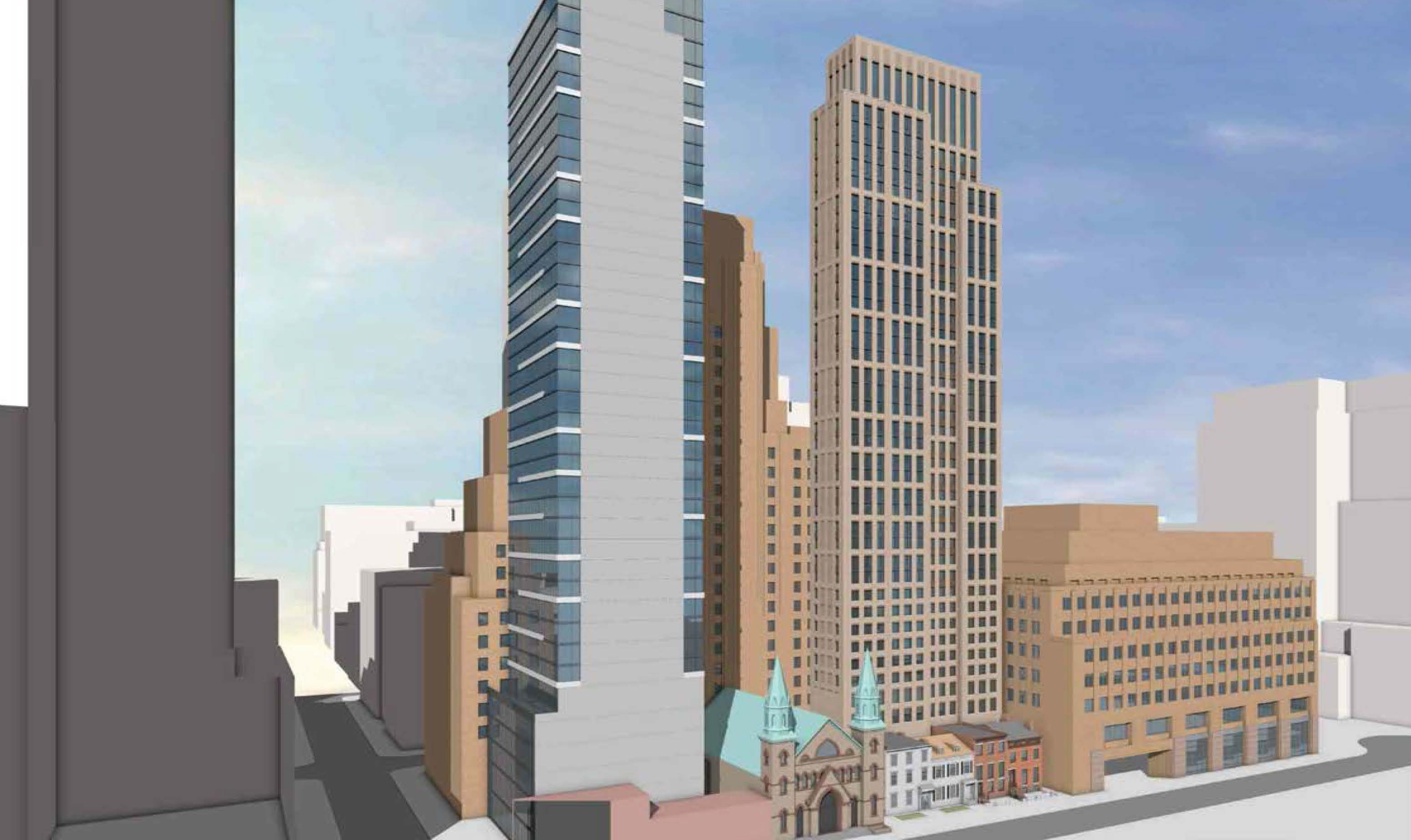Ratner Considers Prefab Tower for Atlantic Yards
The Times reports that Forest City Ratner is considering modular construction for its first, 34-story high-rise at Atlantic Yards. The story says that though the move would cut costs, a prefabricated tower “is untested at that height” and the move would likely piss off construction workers, who were among the mega-project’s most vocal supporters. Although…
The Times reports that Forest City Ratner is considering modular construction for its first, 34-story high-rise at Atlantic Yards. The story says that though the move would cut costs, a prefabricated tower “is untested at that height” and the move would likely piss off construction workers, who were among the mega-project’s most vocal supporters. Although the the developer has its architecture firm SHoP working on designs for both a traditional and modular building, another consideration is whether a prefab structure of this height would actually result in much of a cost savings, according to the story: “Whether taller modular buildings can be built to withstand intense wind shear and seismic forces, while retaining cost savings, is another question, because the higher a structure is built, the more bracing it would require.” The article says developer Bruce Ratner has been “captivated” by the video above, which shows a modular hotel rising in China in just a few days.
Prefabricated Tower May Rise at Brooklyn’s Atlantic Yards [NY Times]





denton, I think that FCR has the technical chops to handle this project, but the steady stream of major revisions makes me question their financial and PM chops.
I understand some of the shifts to deal with the lawsuits and financial meltdown, but that still does not explain the timeline changes and other adjustments that have continued to happen since the arena groundbreaking.
Bxgrl;
When you talk about “busting the unions” I suppose you are referring to the recent events in Wisconsin. My comments on that situation:
-the union was not busted. They still have the right to negotiate wages.
-I agree 100% with the idea that public-sector unions should not be able to negotiate defined-benefit pensions. A defined-benefit pension is a long-term obligation to the taxpayer, the equivalent of a bond. Unlike a bond, however, it is not easy to account for the obligation to the taxpayer, as it depends on speculating future interest-rate movements.
It is for this reason that many public-sector unions like to negotiate relatively reasonable wages, but lucrative pensions. It is hard to see the cost to the taxpayer. To the politicians who negotiate these settlements, it also works: they can reward their union backers, and they won’t be around when the bill comes due.
If public-sector unions want the right to negotiate pensions, then they should be forced to accept defined-contribution benefits, so that the cost is immediate, and on the books.
bessie2 – Government workers had (and have) civil service protections for decades before they even had the right to collectively bargain.
“Finally, cops and firemen are off limits, as far as I’m concerned. I don’t care what their pensions are.” Yes always a wonderful heart warming meme.
As far as I am concerned these are some of the only unions we need to worry about. I have no problem with private unions. Like you said they have negotiated their benefits with their employer. Public unions elect the very folks that determine their salaries. It is a simple and easily understood conflict of interest.
“Bxgirl, your statement about not pushing the envelope is sad, and shows exactly what is wrong with this country. It’s why construction innovation is happening in Dubai, China, Malaysia, and just about everywhere but here.
”
Then denton, you didn’t read anything else I wrote. And that’s sad too because once again you have misunderstood something I said. Pushing the envelope in terms of safety is not an option in my book. Anything else, you have my blessing.
benson- again- no one is talking about ernogtiating the terms of contracts. But you want to throw the bay out with the bathwater. Sure every state is grappling with the issue- but not every state is trying to take away collective bargaining rights just to bust the unions.
I would just like to echo what Denton just said. I have NO PROBLEM with private-sector unions. Moreover, from what I hear, many builders prefer to deal with union labor, because they believe that they are worth the premium in terms of expertise. The construction unions in NY seem to understand the idea that they should earn their premium.
“I would say “most governors” is a bit of hyperbole.”
Really? Please identify ONE major industrial state in the country that is not grappling with this issue. Just yesterday the Wall Street Journal reported that in Illinois Governor Quinn (a Democrat) is floating the unprecedented idea of renegotiating benefits for current workers. Such a move would require a change in the state’s constitution, but the situation in Illinois is that dire.
Those who refuse to recognize the issue will simply not be a part of the political discussions that WILL take place. Unlike the federal government, which can print money, or those who like to cast an opinion, the governors of the major states have to balance their books every year.
“What happened to the American Dream, where a person could succeed by working hard? ”
MM, the individualism implied in that statement is exactly the opposite of the collectivism in unions!
Nevertheless, I have no problems with private sector unions, especially construction unions where the workers are better trained and better qualified.
“The horror, that an uneducated blue collar guy manages to negotiate a better salary than some college boy. ”
They hate the unions because they contribute to campaigns and try to influence elections.
But when private/corporate sector does the same exact thing with even larger coffers it’s totally okay. Why? Well the tortured logic is because they’re paid in the private sector and these teachers and cops and fireman are paid by the tax payers. Unfortunately you choose to ignore the obscene amounts of tax payer money to the tune of billions that paid to the private sector for government contracts.
But there’s a teacher out there with a pension that will keep they off food stamps making 50K a year so apparently that shit has to stop.